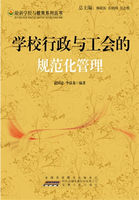The first of these insurrections broke out in the region where the beautiful language of Oc was spoken. That country, singularly favoured by nature, was, in the twelfth century, the most flourishing and civilised portion of Western Europe. It was in no wise a part of France. It had a distinct political existence, a distinct national character, distinct usages, and a distinct speech. The soil was fruitful and well cultivated; and amidst the cornfields and vineyards arose many rich cities each of which was a little republic, and many stately castles: each of which contained a miniature of an imperial court. It was there that the spirit of chivalry first laid aside its terrors, first took a humane and graceful form, first appeared as the inseparable associate of art and literature, of courtesy and love. The other vernacular dialects which, since the fifth century, had sprung up in the ancient provinces of the Roman empire, were still rude and imperfect. The sweet Tuscan, the rich and energetic English, were abandoned to artisans and shepherds. No clerk had ever condescended to use such barbarous jargon for the teaching of science, for the recording of great events, or for the painting of life and manners. But the language of Provence was already the language of the learned and polite, and was employed by numerous writers, studious of all the arts of composition and versification. A literature rich in ballads, in war-songs, in satire, and, above all, in amatory poetry amused the leisure of the knights and ladies whose fortified mansions adorned the banks of the Rhone and Garonne. With civilisation had come freedom of thought. Use had taken away the horror with which misbelievers were elsewhere regarded. No Norman or Breton ever saw a Mussulman, except to give and receive blows on some Syrian field of battle. But the people of the rich countries which lay under the Pyrenees lived in habits of courteous and profitable intercourse with the Moorish kingdoms of Spain, and gave a hospitable welcome to skilful leeches and mathematicians who, in the schools of Cordova and Granada, had become versed in all the learning of the Arabians. The Greek, still preserving, in the midst of political degradation, the ready wit and the inquiring spirit of his fathers, still able to read the most perfect of human compositions, still speaking the most powerful and flexible of human languages, brought to the marts of Narbonne and Toulouse, together with the drugs and silks of remote climates, bold and subtle theories long unknown to the ignorant and credulous West. The Paulician theology, a theology in which, as it should seem, many of the doctrines of the modern Calvinists were mingled with some doctrines derived from the ancient Manichees, spread rapidly through Provence and Languedoc. The clergy of the Catholic Church were regarded with loathing and contempt. "Viler than a priest," "I would as soon be a priest," became proverbial expressions. The Papacy had lost all authority with all classes, from the great feudal princes down to the cultivators of the soil.
The danger to the hierarchy was indeed formidable. Only one transalpine nation had emerged from barbarism; and that nation had thrown off all respect for Rome. Only one of the vernacular languages of Europe had yet been extensively employed for literary purposes; and that language was a machine in the hands of heretics. The geographical position of the sectaries made the danger peculiarly formidable. They occupied a central region communicating directly with France, with Italy, and with Spain.
The provinces which were still untainted were separated from each other by this infected district. Under these circumstances, it seemed probable that a single generation would suffice to spread the reformed doctrine to Lisbon, to London, and to Naples. But this was not to be. Rome cried for help to the warriors of northern France. She appealed at once to their superstition and to their cupidity. To the devout believer she promised pardons as ample as those with which she had rewarded the deliverers of the Holy Sepulchre. To the rapacious and profligate she offered the plunder of fertile plains and wealthy cities. Unhappily, the ingenious and polished inhabitants of the Languedocian provinces were far better qualified to enrich and embellish their country than to defend it. Eminent in the arts of peace, unrivalled in the "gay science," elevated above many vulgar superstitions, they wanted that iron courage, and that skill in martial exercises, which distinguished the chivalry of the region beyond the Loire, and were ill fitted to face enemies who, in every country from Ireland to Palestine, had been victorious against tenfold odds. A war, distinguished even among wars of religion by merciless atrocity, destroyed the Albigensian heresy, and with that heresy the prosperity the civilisation, the literature, the national existence, of what was once the most opulent and enlightened part of the great European family. Rome, in the meantime, warned by that fearful danger from which the exterminating swords of her crusaders had narrowly saved her, proceeded to revise and to strengthen her whole system of polity. At this period were instituted the Order of Francis, the Order of Dominic, the Tribunal of the Inquisition. The new spiritual police was everywhere. No alley in a great city, no hamlet on a remote mountain, was unvisited by the begging friar. The simple Catholic, who was content to be no wiser than his fathers, found, wherever he turned, a friendly voice to encourage him. The path of the heretic was beset by innumerable spies; and the Church, lately in danger of utter subversion, now appeared to be impregnably fortified by the love, the reverence, and the terror of mankind.















